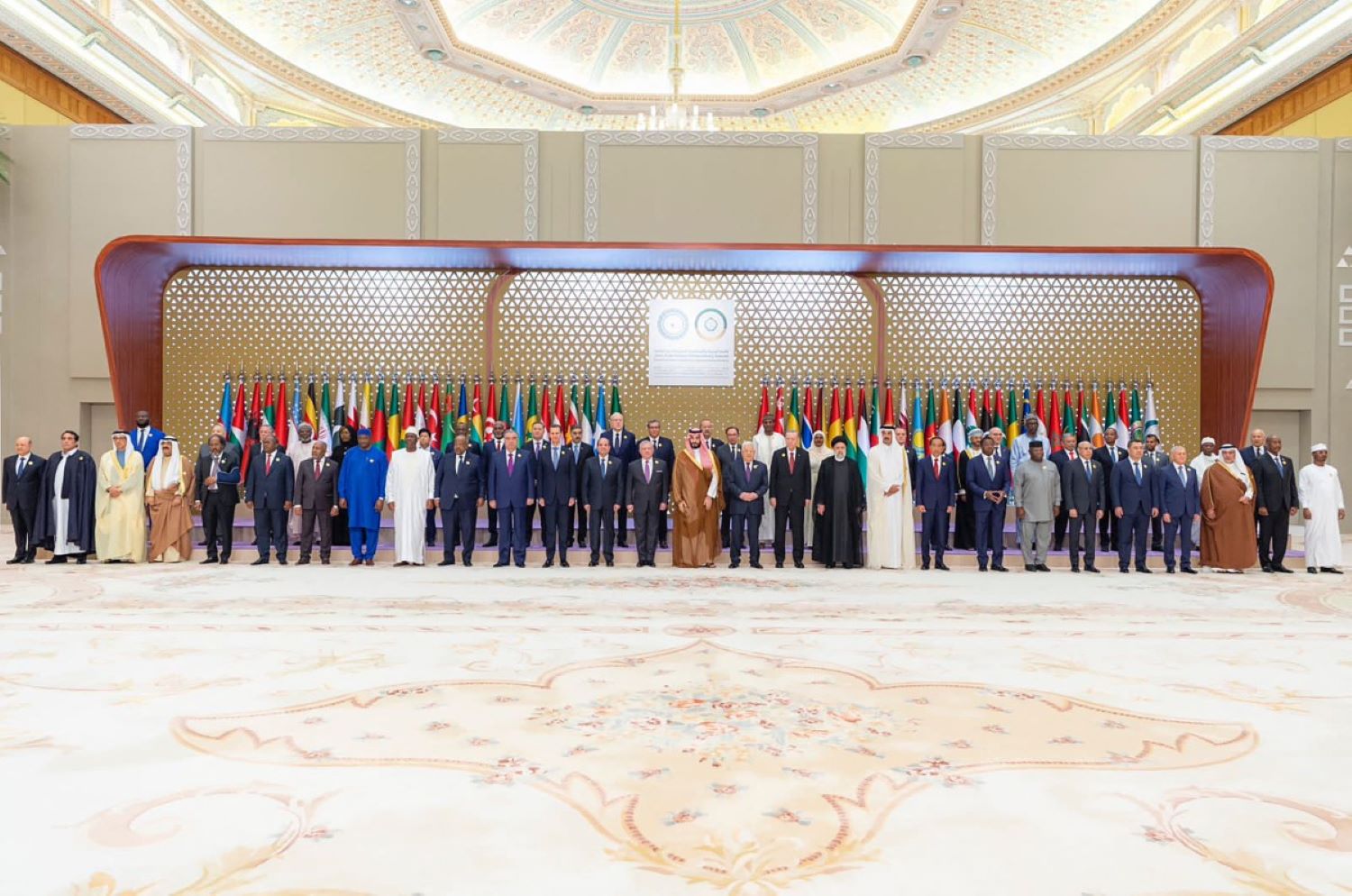RIYADH, SAUDI ARABIA – Arab and Muslim leaders on Saturday condemned Israeli forces’ “barbaric” actions in Gaza but declined to approve punitive economic and political steps against the country over its war against Hamas.
The outcome of a joint summit in the Saudi capital of the Arab League and the Organization of Islamic Cooperation highlighted regional divisions over how to respond to the war even as fears mount that it could draw in other countries.
The summit took place against a backdrop of widespread anger in the Middle East and beyond over Israel’s aerial and ground offensive in Gaza, which has killed over 11,000 people, mostly civilians and many of them children, according to the Hamas-run health ministry.
Israel says it has set out to destroy Hamas following the militant group’s bloody October 7 attacks that Israeli officials say killed about 1,200 people, also mostly civilians, and saw about 240 taken hostage.
The final declaration on Saturday rejected Israeli claims that it is acting in “self-defense” and demanded that the United Nations Security Council adopt “a decisive and binding resolution” to halt Israel’s “aggression”.
It also called for an end to weapons sales to Israel and dismissed out of hand any future political resolution to the conflict that would keep Gaza separate from the Israeli-occupied West Bank.
Saudi Arabia’s Crown Prince Mohammed bin Salman, who before the war was considering establishing formal diplomatic ties with Israel, told the summit he “holds the occupation (Israeli) authorities responsible for the crimes committed against the Palestinian people.”
Iranian President Ebrahim Raisi, on his first trip to Saudi Arabia since the two countries mended ties in March, said Islamic nations should designate the Israeli army a “terrorist organisation” for its conduct in Gaza.
Israel blames Hamas for the high death toll, accusing it of using civilians as “human shields” — a charge Hamas denies.
Regional divisions
The Arab League and the OIC, a 57-member bloc that includes Iran, were originally meant to meet separately.
Arab diplomats told AFP the decision to merge the meetings came after Arab League delegations failed to reach an agreement on a final statement.
Some countries, including Algeria and Lebanon, proposed responding to the devastation in Gaza by threatening to disrupt oil supplies to Israel and its allies as well as severing the economic and diplomatic ties that some Arab League nations have with Israel, the diplomats said.
However, at least three countries – including the United Arab Emirates and Bahrain, which normalised ties with Israel in 2020 – rejected the proposal, according to the diplomats who spoke on condition on anonymity.
In a statement issued from Gaza, Hamas called on summit participants to expel Israeli ambassadors, form a legal commission to try “Israeli war criminals” and create a reconstruction fund for the territory.
Syrian President Bashar al-Assad said a lack of concrete punitive measures against Israel would render the summit toothless.
“If we do not have real tools for pressure, then any step we take or speech we give will have no meaning,” said Assad, who was welcomed back into the Arab fold this year after an extended rift over his country’s civil war.
He said no Middle Eastern country should engage in any “political process” with Israel, including developing economic relations, until a lasting ceasefire is reached.
The lack of consensus was no big surprise, said Rabha Saif Allam, a specialist in Middle Eastern affairs at the Cairo Center for Strategic Studies.
Differences between Washington’s Arab allies and countries closer to Iran “can’t be erased overnight,” Allam said.
Israel and its main backer the United States have so far rebuffed demands for a ceasefire, a position that drew heavy criticism on Saturday.
Turkey’s President Recep Tayyip Erdogan said “it is a shame that Western countries, which always talk about human rights and freedoms, remain silent in the face of the ongoing massacres in Palestine”.
Prince Faisal bin Farhan, the Saudi foreign minister, similarly decried “double standards” in the world’s response to the war, saying Israel was getting a pass on violations of international law.
Iran president in Riyadh
Raisi’s stop in Riyadh made him the first Iranian president to set foot in Saudi Arabia since Mahmoud Ahmadinejad attended an OIC meeting in the kingdom in 2012.
Iran backs Hamas as well as Lebanon’s Hezbollah and Yemen’s Houthi rebels, placing it at the center of concerns the war could expand.
The conflict has already fuelled cross-border exchanges between the Israeli army and Hezbollah, and the Houthis have claimed responsibility for “ballistic missiles” the rebels said targeted southern Israel.

